More on What It’s Like to Be Addicted to, Yes, Weed
“Plenty of people have a normal relationship with weed. Surely, this time, I can too?”
To commemorate our 7th anniversary and Recovery Month, we’re offering a 20% discount on all annual subscriptions throughout September.
If our newsletter has helped you feel less wicked and alone, less shitty or afraid, then please consider financially supporting us. Subscribers gain access to the entire archive, the Sunday essay, the complete recommendations roundup, and the comprehensive rundown of my weekly recovery program.
If you’d like to become a paid subscriber but can’t afford it at this time, email me: ajd@thesmallbow.com and I’ll hook you up.
Clear eyes, full hearts, etc. — AJD
Earlier this month, we asked our beloved TSB community to tell us about their relationship to cannabis. A lot of folks had a lot of things, and a lot of different things, to say. This “What It’s Like . . .” is the first in a series.
As with our other Check-Ins, all the Anonymous writers below are credited collectively as “The Small Bow Family Orchestra.”
The ***** separates individual entries, as do pull quotes.
Edith Zimmerman drew everything.
*****
But Weed IS Me
by The Small Bow Family Orchestra
*****
There are days when I think I like myself as a person but then I remember that can’t possibly be true because I’m constantly trying to mute myself.
A journal entry from August of 2022: “I need to white knuckle through getting off pot. It is, for sure, the change I need most. But weed IS me. It’s funny, it’s gross, it’s happy, it’s sad, it’s silly, it’s interesting, it’s joyful, it’s depressed, it’s lazy, it’s me. All of me. It’s been my identity for 20 years. How sad is that? It’s not all bad but it’s not who I want to be. I need to learn an entirely new life to get off pot but I just don’t have that in me.”
I’ve never told anyone my struggles with weed aside from my husband because I can’t hide it from him. A PTA kind of mom, business owner, church-goer, philanthropist who can’t get through the day without THC in some form. I remember getting pregnant at one point, hoping it would be the thing I needed to stop my relationship with weed . . . but it wasn’t. I took edibles through pregnancy and continue to use THC as a mom. It was well known in my teens and 20s that me and weed were synonymous, but as I grew up and became a more serious person, I felt more and more shame that I need pot to turn myself off. There are days when I think I like myself as a person but then I remember that can’t possibly be true because I’m constantly trying to mute myself. Or maybe I don’t know who I am at all because I’ve only known my adult-self through these weed-tinted glasses. Do my kids even know me? Does anyone? It breaks my heart to think back on my life and wonder what it could have been if I got back all the time I spend managing my THC intake. If this is who I am while I’m high, maybe not-high-me would be some kind of superhero. But the world will never know.
It’s a lonely and hopeless feeling. I wish I had a friend in this who understands and could hold me accountable but it’s just me because everyone knows weed “isn’t that bad.” As much as I share my shame with my husband, he still asks me weekly what I need from the dispensary. I explain to him that it doesn’t help me. But I know why he does it. He knows I’m going to be intaking no matter if he asks or not. He knows I don’t stand a chance against the addiction. Writing this and getting out what I’ve often wished I could explain to people was cathartic. I don’t know if any of this makes sense or how many words this message is but I needed to get this out. Thank you for the outlet.
*****
Phrased like that, it’s pretty obvious why I have a problem with weed, huh.
I am always hesitant to say I am addicted to weed, but I certainly can’t use it in moderation and it’s always been my drug of choice. I was completely dependent on it in college after my younger brother died, and only stopped using after I got arrested and spent a year on probation. I mostly stayed away from it for a long time after that, right up until I quit drinking and needed a new way to get away from my own brain.
Phrased like that, it’s pretty obvious why I have a problem with weed, huh.
Over the last couple years I’ve tried different ways to moderate my use and keep coming up short. When our kids were toddlers I would eat like 5 mg just to keep myself from getting too cranky with them, and it felt okay for a while. Then I realized I was just modeling suppression of emotions.
I got a dry herb vape (which rules and I recommend to anyone who has a healthy relationship to cannabis) and started getting high every day, earlier and earlier during the day. Then I started creating all the same rules I used to try with booze, only having so many bowls a night, never on weeknights, never before 5 or after 8:30 p.m. to protect my sleep . . . didn’t work out. So then the vape went into a box in the garage.
I tried gummies only after that, and the new short-acting nano formulas they have hit fast enough that I could pop one after the kids’ bedtime and still get a good night’s sleep. But I just decided to go off those two, like three days ago. I think if I can find times where I get high in support of a specific activity, it would maybe be okay. Like I know that sativa and gardening or indica and anime are wonderful combinations. But as long as I reach for weed every time I feel bummed out or overwhelmed, I’m just plugging it into the same unhealthy behavior pattern, filling the same gap in my coping skills.
And, to be clear, that sucks! Because weed IS one of the good drugs, and I really enjoy being moderately high. It’s just that there’s always those times when I want to be way more than moderately high, and once I start, I always end up back there, trying to get and stay as high as I possibly can. And I never feel good about it the next day.
*****
I don’t care how hard your drug is compared to mine, it’s not a contest.
My weed story is a daily battle. Every day I wrestle with what a healthy relationship to it could be, but most days — including today — I feel needy, dependent, and ashamed of how much I use cannabis.
Sure, maybe I’m one of those “California Sober” weed hippies, but bro, this is the first thing I’ve ever been truly addicted to. It’s knowing it’s hurting you, wanting to stop, and still not being able to.
The story I tell myself is that cannabis makes me feel happier, more creative, and more energetic. But I know these things are available naturally and at a lesser cost to my body, mind, and wallet. For a few years I got hooked on Puffco vaping devices which infuse your lungs with ultra-potent, high-concentrate THC. These are 90%+ THC concentrates going into your lungs. From meeting to meeting, I would inhale and then jump on my next call.
I told myself cannabis helped cut the anxiety I’d feel in endless one-on-one meetings with my direct reports. I got pushed into a higher-paying management role without understanding how this was a bad fit for my highly introverted, highly sensitive body, but with every puff I believed it would help.
Weed hasn’t just tangled up my mind, it’s punished my body too. When vaping all day, my chest would ache or leave me with bad sinus headaches. The Puffco burned my lungs so badly that sometimes I couldn’t even talk. Even my teeth and tongue grew weird-feeling.
I don’t care how hard your drug is compared to mine, it’s not a contest. We are more alike than different. Your drugs might be more dangerous, true, but I believe we suffer the same punishing sting of doing something we wish we were strong enough not to do—and it bugs us every day.
These past nearly ten years, I’ve had stretches of sobriety with about four months being my longest stretch. Otherwise, nearly all waking hours I am consuming cannabis. Always thinking about it, always needing it. Getting pissy when devices weren’t working or charged. Knowing it’s not good for my body.
Right now I’m back to smoking joints, hopefully better for me. I’d like to feel control over the substance and be able to use it every now and then as a treat, then back away for weeks or months. But I feel very far from that now.
I’ve tracked some of my quits in journals. Day 1 was easy — just sore lungs. Day 2 hit harder: no sleep, clammy hands, sweats. My body was screaming detox. “Health is wealth,” I wrote, “and weed is the unhealthiest thing in my life.”
I am starting to research the 12 steps and read from members of communities like this because I want to live a more sober life from natural highs. I’d rather not have a totally weed-free future — but who knows. I am open to anything, and here for the ride.
*****
I quit drinking six years ago and that feels like child’s play in comparison to the rocky relapse road of quitting cannabis.
My counting app tells me it’s been five months, one week, and four days since I last smoked a joint or ingested cannabis. It’s my longest stretch since I stopped when I was pregnant with my first child three years ago, and I suspect it will surpass that given that I am newly pregnant with my second child and pregnancy seems to be the one boundary weed has not yet induced me to break. It’s hard and it’s excruciating. I quit drinking six years ago and that feels like child’s play in comparison to the rocky relapse road of quitting cannabis.
I think about weed almost every single day. I think about what it might be like to do my work a little stoned again, how I might be a more relaxed parent if I just took a quick hit before sitting down to play play-doh, how much easier it was to get myself to take the train to work when I sat on the porch and smoked my way to calm first, how much more relaxed and cheerful a colleague I was all dang day because of it.
It is harder to make myself remember that one joint a day turned into three and then five and then almost hourly in a blink. It is harder to remind myself that I blew my monthly financial goals almost entirely because of cannabis. And it’s only with weekly therapy that I’m able to remember how much I lost of myself to weed addiction — how much I turned it into a moral failing in my mind in a way that depressed me and made me withdraw from the real world.
What is my relationship to weed? I hope desperately to never use it again, at the same time I can imagine nothing better than sitting on my porch with a good book or a bit of writing, smoking a joint and watching passersby while feeling the early fall breeze. Nothing’s replaced that peace, and some days I worry nothing ever will.
*****
I used to make the joke that I’d made some really bad choices drunk, but the worst thing I’d done high was eat too much fast food in one sitting.
I started smoking weed after college, in the legal gray-area ’10s in LA. When you would get a card from a shady doctor on the Venice boardwalk. You’d pull up to some dilapidated plaza, buy an 1/8th of flower and then spin a prize wheel for free wax or edibles on your way out the door.
Cannabis doesn’t have to be a “bad” drug to be addictive. There are plenty of people who can smoke a joint at a concert or a movie and not smoke again for six months, same as there are people who can have a beer at a game and not need to chase it with three shots of whiskey. I’m just not one of those people.
Early days of smoking weed consisted of getting stoned and watching cartoons or playing video games with friends. I have a forever funny memory of a friend baking a pan of inexact weed brownies that dosed a group of us something fierce and ruined Thanksgiving. A friend visited from the draconian-seeming East Coast and we got high at Coachella. My wristband broke and I had to will myself to be sober enough to go through the process of registering a new one on a dying phone battery before they’d let me back in. Young people experimenting, overindulging and having fun. I used to make the joke that I’d made some really bad choices drunk, but the worst thing I’d done high was eat too much fast food in one sitting.
Fifteen years later, I wasn’t getting stoned with friends, I was getting stoned alone. I wasn’t willing myself to be sober enough to solve a silly problem, I was too high to solve any problem. Too much fast food became too much food in general, and exacerbated food issues that led to me gaining a noticeable and unhealthy amount of weight. I knew it was time to quit, that waking up really early to smoke a bowl so that I could sober up enough before work wasn’t a healthy or frankly normal thing to be doing. I started smoking even more after I stopped drinking, because weed was different. Weed wasn’t one of the “bad” drugs.
But an addict is an addict all the same.
I’ve been sober from cannabis for three months and change, a direct result of a trip to the ER with intense stomach issues that resulted in severe dehydration. The doctor diagnosed me with Cannabis Hyperemesis Syndrome, a seemingly uncommon but very real side effect of long-term heavy cannabis use. I miss it more than I miss booze, but I also see how it ate up my free time. Being able to fill that time back up with friends, community and hobbies has made me realize that for me there are no “good” drugs. There are just drugs. And I, unfortunately, am a drug addict.
*****
It isn’t until you’ve crawled into a hole and hermetically sealed yourself off from the world that you realize you needed that air to survive.
Addiction progressively narrows the lens of things that bring joy until a sort of terminal velocity is achieved and the dopamine pathways are completely roadblocked. Weed is the most insidious of all the drugs because executive functioning isn’t affected until the very last moment, when you realize you’ve been drowning slowly. It becomes the missed opportunities and excuses not to engage with reality under the guise of self-care. It looks like a hundred half-completed tasks or a new hobby that never gets off the ground. It’s the calls not returned and hours that seem to melt away. “I’ll do it tomorrow” is the permanent schedule. It isn’t until you’ve crawled into a hole and hermetically sealed yourself off from the world that you realize you needed that air to survive.
It seems so benign, so hip, I’m a canna-mom . . . if I stop now how do I justify those fifteen years that I relied on that “plant medicine” and all the arguments I fought for its sake. There was no discernment when I used, from doing the dishes to sitting in front of a panel of interviewers for a high-stakes career. I smoked to get through my work day, I smoked through both of my pregnancies, I was high at my wedding, and high at my husband’s funeral. From wake and bake to midnight delight, I never considered that I was hardly ever sober; it was just part of the identity I’d forged. I was shamefully aware of the abusive relationship I had been in with substances in my late teens and early twenties but didn’t consider weed harmful because its impacts were never as acute as rolling a car down a ravine wasted on pills and booze.
Weed became the replacement when I finally admitted I could not drink in moderation and quit alcohol. Weed was an addiction I could justify as a high-functioning chronic, surrounded by other high-functioning chronics with nice houses, fancy cars, and stable jobs. I didn’t associate it with numbing pain, just achieving baseline. As I started to unravel the trauma I still carried around the age of 30 it became obvious to me that I’d been medicating myself all this time whilst privately judging friends who turned to prescription medications to manage anxiety and depression. Rather than depression, I chose suppression, and there’s something so seductive about lighting up a joint and pushing off those problematic thoughts to another day.
Human emotions tend to follow the same physics as fluid dynamics, and even the layperson knows that water cannot truly be compressed. The suppressed emotions can spend months dormant in a haze of apathy, but eventually the cool stoner becomes a road-rager snapping at her kids to leave her alone for her “mommy moment” when the time finally comes to light up. The headaches between uses intensify, the withdrawal symptoms no one talks about make their appearance, and using becomes an excuse to medicate against maladies that don’t actually exist outside of the addiction. Quitting isn’t as hard as it seems in the imagination, the first few days are rough, but then the clarity returns. That’s where I am right now. I’m through the worst of the headaches and night sweats. I still have no appetite and I’m a little glum but my short term memory has already improved. I wonder how many moments were lost. The hardest part of the first week of quitting is avoiding the urge to light up to celebrate the improvements. However, my mid thirties have ushered in a new era of wisdom and while I may be able to bullshit myself . . . I sure can’t lie to myself.
*****
I wasn’t just using gummies when I was having a movie night with my friends or trying to fall asleep anymore — I was using it to manage my intense feelings of grief at the time when I was supposed to be happiest.
I grew up religious and didn’t start using substances, like alcohol, until I was of legal drinking age. Before weed was legalized in Canada, I had one or two hits off of joints at parties that didn’t do anything for me. It wasn't until dispensaries started opening up across Canada in 2019/2020 that I first started using weed more regularly, usually through THC gummies. My friend showed me a website where you could order large, dense amounts of THC gummies, and I began taking little nibbles off of them every night when I got home from my job as a youth housing worker to try to sleep. In the summer of 2020, one of my youth housing clients died of a fentanyl overdose in a Covid hotel where they were isolating folks who normally slept in shelters. His death occurred only two weeks before I was supposed to get married, and that was when all of my rules regarding weed began to slip. I wasn’t just using gummies when I was having a movie night with my friends or trying to fall asleep anymore — I was using it to manage my intense feelings of grief at the time when I was supposed to be happiest. I was secretly high at almost every event leading up to my wedding, though I didn’t use on my actual wedding day so I could only feel the real feelings of that day.
I kept working in youth/social work for two more years, and continued to use weed almost nightly. When I finally quit to go back to school, my schedule no longer required me to be sober to drive or do my job. I got my first dab pen and started buying cartridges all the time. I was going through one a week in no time, and spending a lot of my meagre student budget. I go through phases of trying to take breaks from cartridges and switching to pre-rolls so that I have to go outside and smoke rather than just getting the instant gratification of a hit on the pen. Over Christmas, I was trying this method, and got caught smoking weed at my parents’ house like a teenager, even though I’m almost 30.
Though I did manage to take a 10-day tolerance break this spring (thanks to Instagram user @craftedcancoach and r/petioles), I struggle to make it through days without the relief of weed. I’ve always been a very sensitive person, and can get caught in overthinking without the help of weed to focus my mind on happier, more creative thoughts. Weed makes me feel more open and connected to people, and also has helped me write some of my favourite poems I’ve ever written. It brings me into my body and out of my head and helps me to feel more grounded here in the world. It also costs me about $120 a month right now which feels like too much for me to justify, but it’s hard to put a price on peace of mind. It’s “just weed,” but not a lot of research has come out about whether or not daily use will affect my brain long-term. While I work with my expensive therapist and doctor to manage my anxiety, weed feels like a good fix when all else fails. It also feels really bad to feel like I need a substance every day to be okay, but I feel about coffee the same way I feel about weed — this is an ingredient in my day that helps me to work better and be more present. Is that so bad? Should I stop? How can I? Will I ever be able to be a casual weed smoker again?
*****
For me, it sure was true that if I took even just one tiny hit, I would absolutely want another.
This morning I was reading “More About Alcoholism” with a sponsee, which is chapter three of the Big Book, classic AA.* And all I could think about was how I sure was (am) a pot addict.
Marijuana Anonymous saved my life. Or at minimum, MA saved my soul — since, as people just looooove to point out, weed is not likely to cause physical death.
But weed sure can drain you of your motivation and self-esteem. It sure can coax you to accept the unacceptable — in my case, sexual and emotional abuse. It sure can become an inescapable desire and compulsion. For me, it sure was true that if I took even just one tiny hit, I would absolutely want another. It was true that I tried so many times (SO many times) to stop and simply could not. I remember feeling disembodied, watching my arm extend toward the bathrobe hanging on my door, rooting into the pocket where I hid my stash, packing a bowl, lighting it, inhaling deeply — then heading back out the door and off to work. I’d returned home that morning to grab my yoga mat.
(Why did I keep my stash in my bathrobe pocket? Because I always got high before showering!)
I know people say weed isn’t addictive. Thankfully enough people understand otherwise that Marijuana Anonymous officially became a thing in 1989, and I’m so glad it was there for me in 2011. I was intimidated by AA: I didn’t drink daily or behave like my abusive ex, so I didn’t think I qualified. And I figured I’d for sure be laughed out of NA. But it’s still true that the last time I got stoned, right before I left for an MA meeting, I was paranoid — POSITIVE that the man next to me on the subway reaching into a paper bag was going to pull out a gun. I was certain. I couldn’t believe this was how I was going to die, high and on my way to finally stop having to be that way. But when the dude removed his hand from the bag, he was only holding a can. And when I got to the meeting, I found my people.
Ex-stoners are not the same as ex-drinkers. For example, I think fewer sober potheads exhibit Type A tendencies, which might explain why many of us end up eventually coasting over to AA, where the infrastructure is a bit more reliable. But especially in the beginning, I needed the specificity of Life With Hope — MA’s version of the Big Book. And still today, when I hear someone talk about drinking even when they didn’t want or mean to, or drinking alone and feeling both guilty and unrepentant, I can’t relate unless I mentally swap in pot for alcohol.
*****
It starts as a way to wind down in the evening and then step-by-step turns into getting high during the work day, and then not really working very much at all.
I can always tell it’s getting bad again when I feel compelled to reread Infinite Jest. Until recently, David Foster Wallace was the only other person I knew about who understood himself as having a Problem with cannabis. Of the many weed-addicted characters in the text, it’s the Kate Gompert figure whose experience most closely reflects my own: It starts as a way to wind down in the evening and then step-by-step turns into getting high during the work day, and then not really working very much at all. And then when I quit, I get really depressed.
It makes me engage in what absolutely feels like addict behavior. I say it’s helpful for my art, or getting the house cleaned up, but pretty quickly it just ends up with me sitting there slack-jawed 12 hours out of every 24, listening to podcasts and doodling nonsense. I turn down plans because I’d rather get high at home by myself. I don’t answer phone calls or texts. I isolate from my friends and partner. And when I’m using, I’m using every day. I get high; I wake up the next day with a weed hangover, my brain slippery smooth and unable to focus on anything. So, then, what’s the harm in getting high again today, since I’m not going to get anything substantial done anyway? And then I wake up the next day with a weed hangover, brain smooth, no focus, so then what’s the harm . . . ? Etc.
Even when I’m sober it’s a struggle. Plenty of people have a normal relationship with weed. Surely, this time, I can too? (I can’t.)
*****
MORE IN THIS SERIES:
More on What It’s Like to Love an Addict
“When I consider what it must be like for him to feel that concern for other humans each day, I don’t have to wonder why it all became too much.”
What It's Like to Have Money Shame
"I got a $35K bonus from work in 2023, and it all went to debt. I closed out the year having accumulated that exact amount of debt again."
What It’s Like to Be Addicted to P*rn
“Things I’d never said out loud — not even to myself — I shared with relative strangers, some of whom had just checked in that day. I went in there confident I would never talk about paying for sex with strippers, never talk about looking at animal porn, and sure as hell never describe how many times I’d been unfaithful to women.”
*****
NEW TSB PODCAST EPISODE: On trauma, EMDR, poetry, and forgiveness.


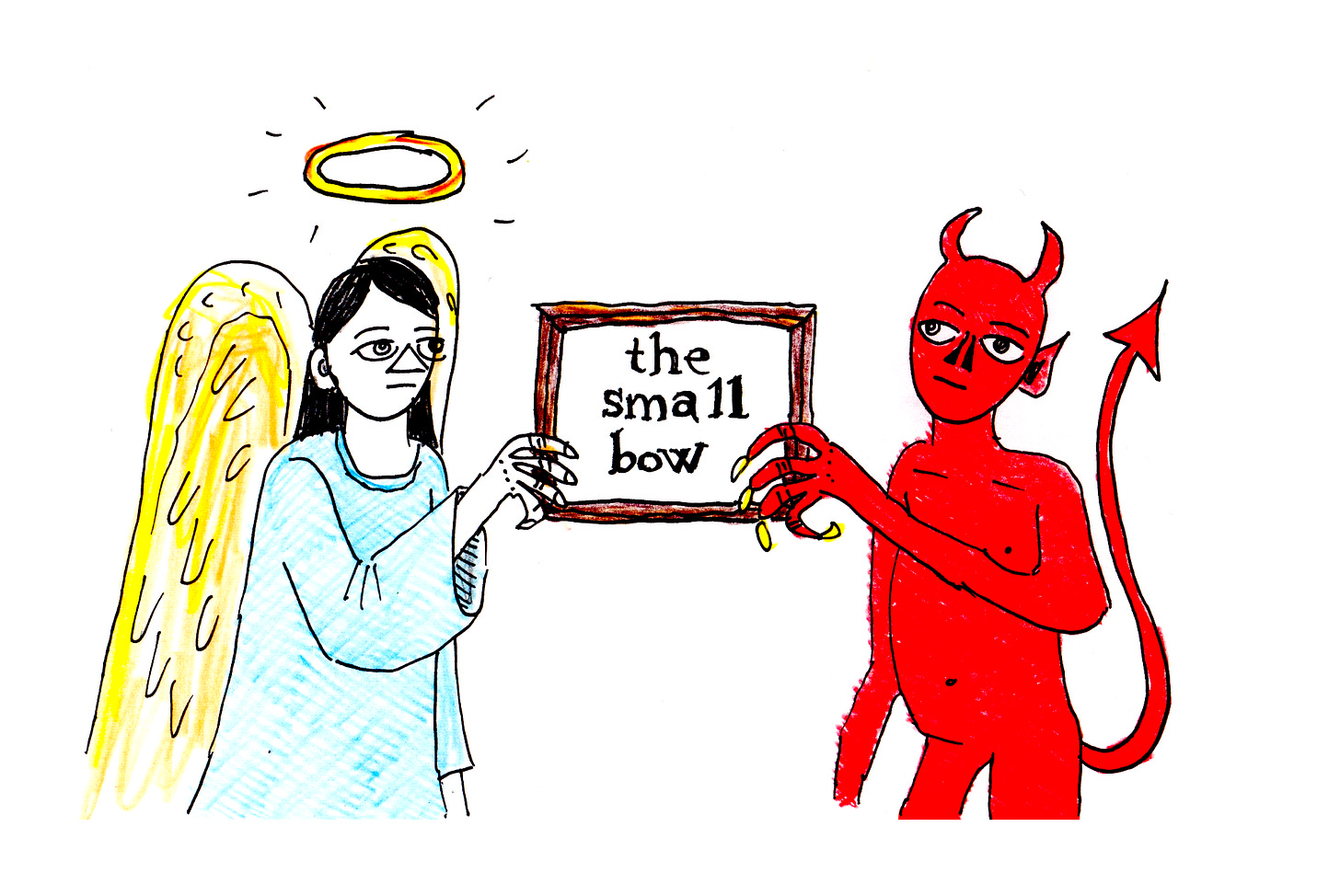

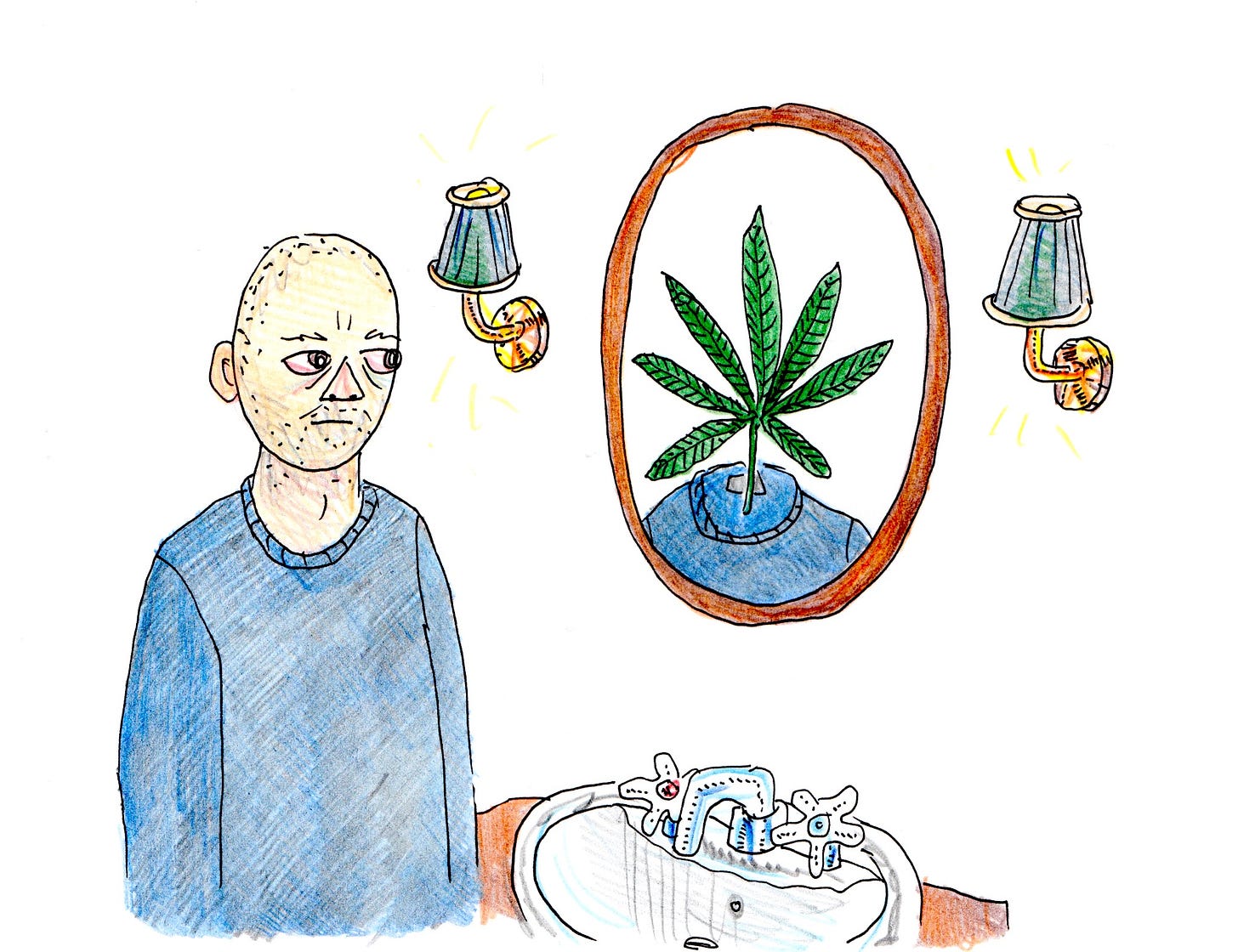
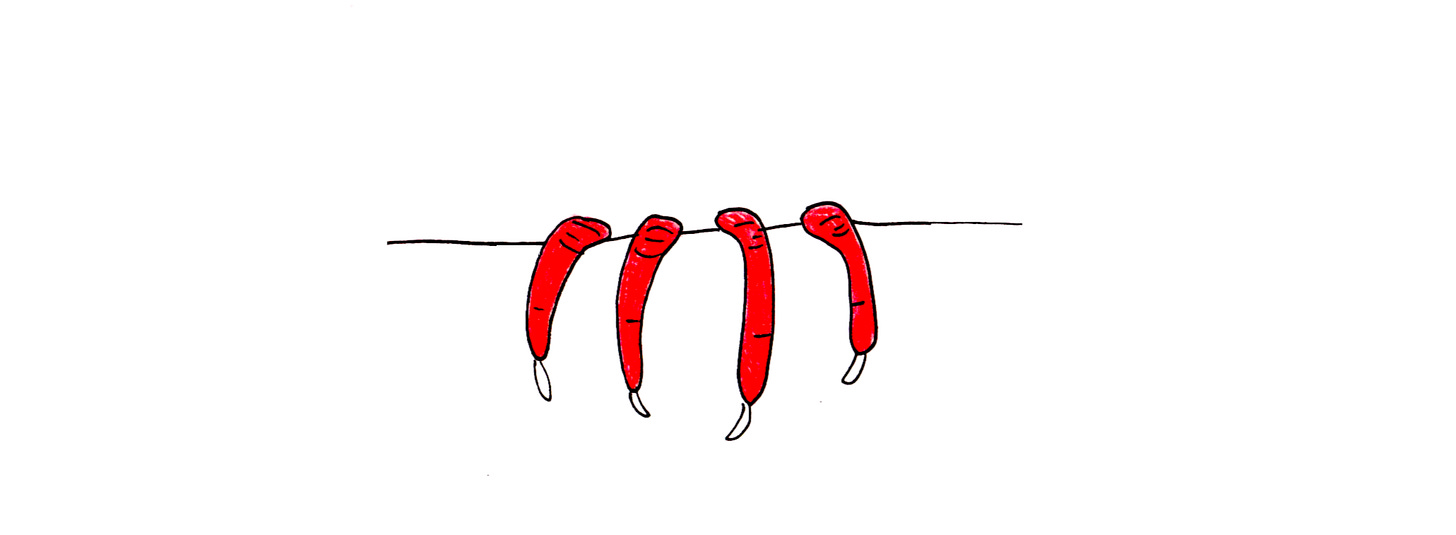
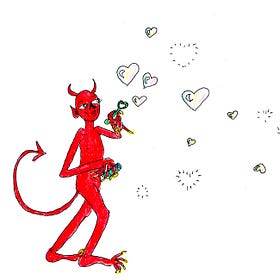
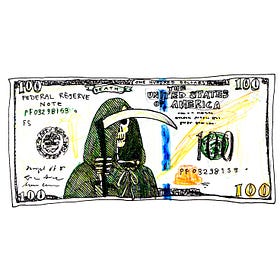
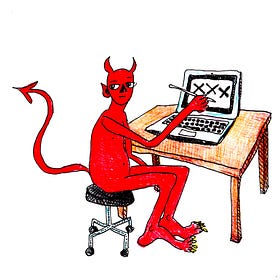
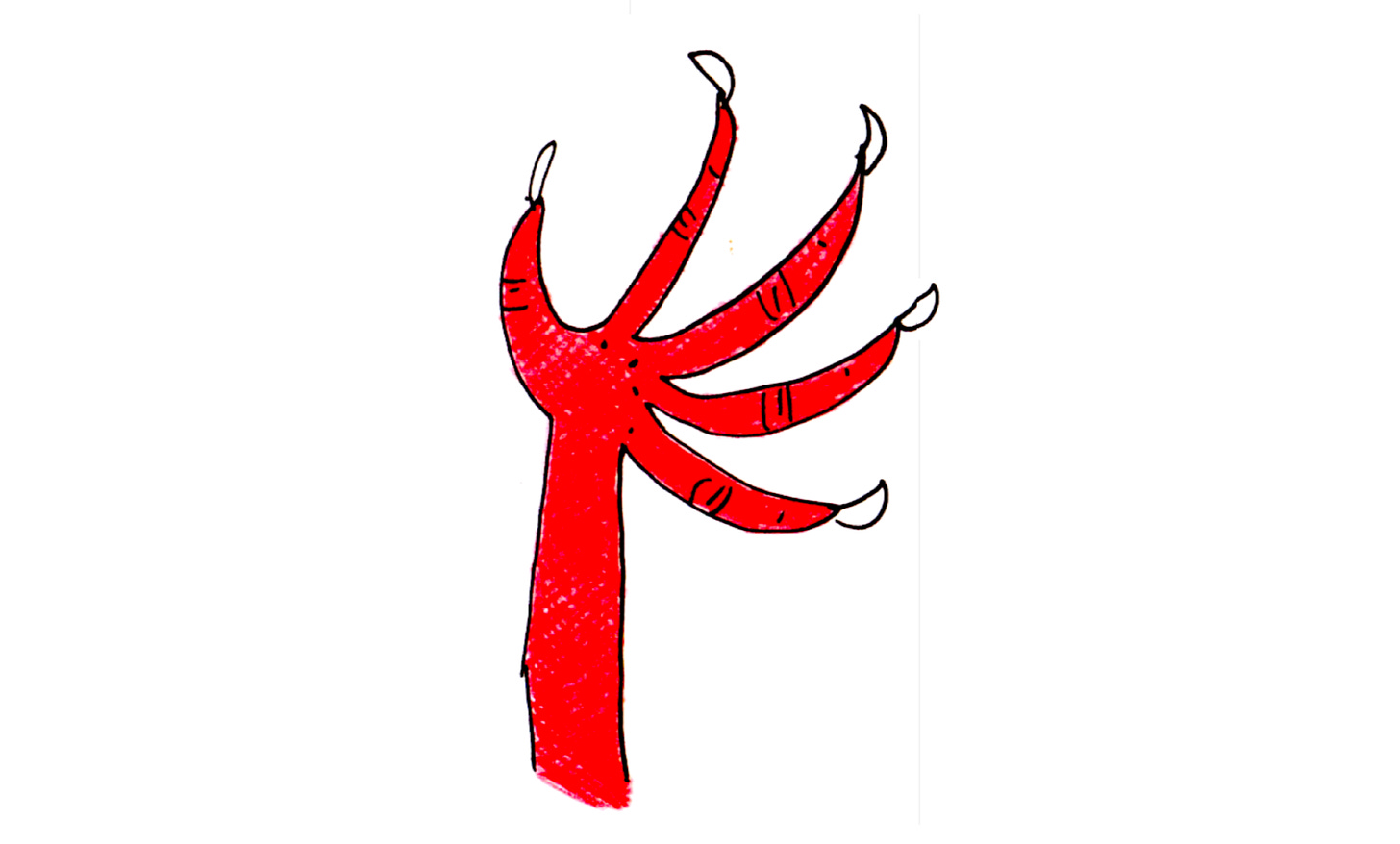
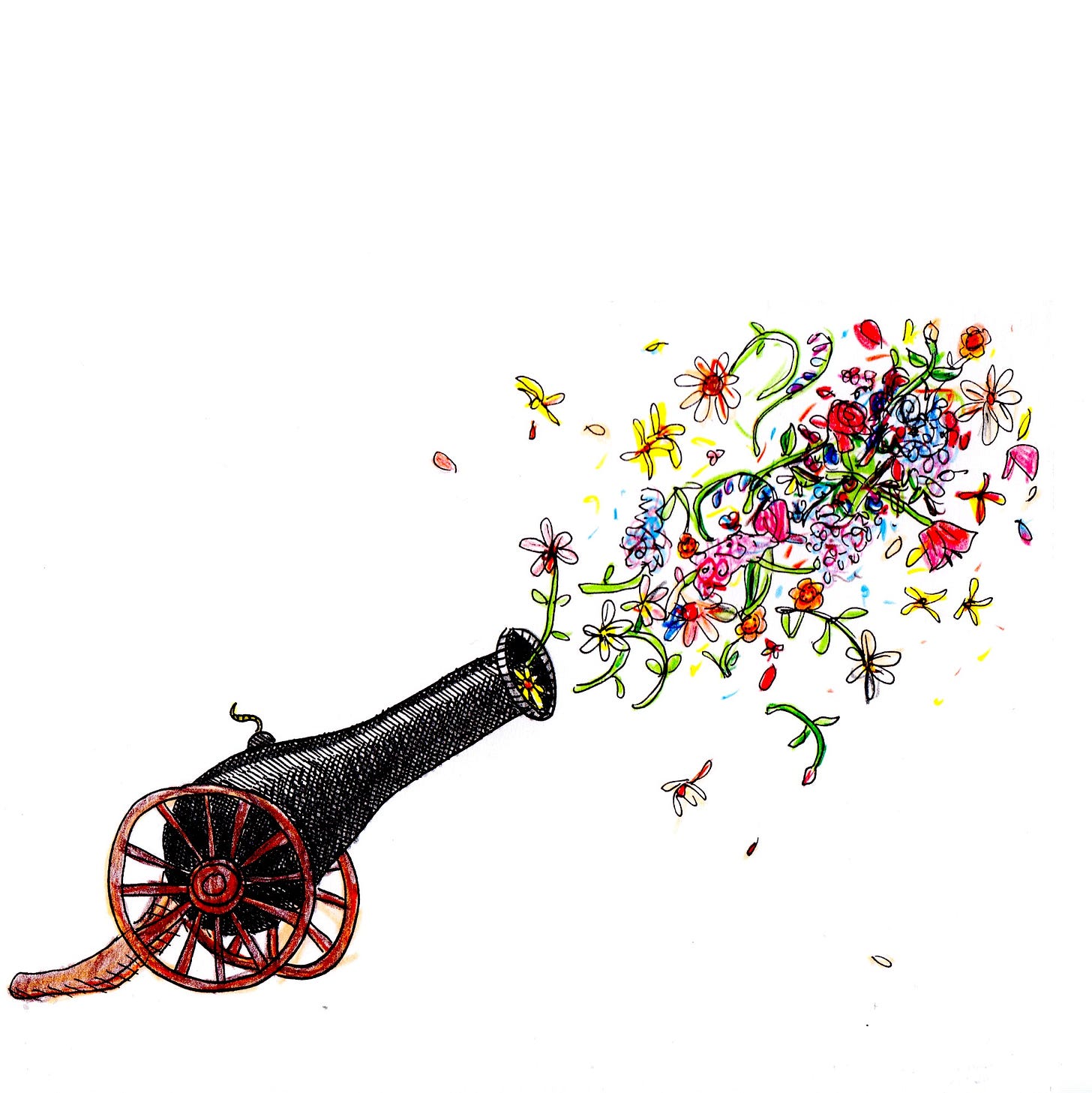
The raw honesty in your Small Bow Family Orchestra stories cuts deep, showing how weed can start as a lifeline but slowly become a trap, clouding everything from motivation to self-worth. I’ve been there—using marijuana to manage chronic pain, it was a game-changer for weaning off and ultimately stopping the VA’s opioid prescriptions. But when I quit, I noticed my dreams came roaring back, vivid and intense, as my brain relearned to process emotions without the haze. That’s why I wrote an article about how marijuana suppresses REM sleep, leading to those wild dreams in recovery, to guide others through the fog. Your platform gives voice to these struggles, reminding us we’re not alone in the fight for clarity. If my article resonates, I’d love for you to subscribe to my Substack for more insights! Full article: https://sleuthfox.substack.com/p/want-your-dreams-back #RecoveryPath #ChronicPain #SoberLife #MarijuanaRecovery